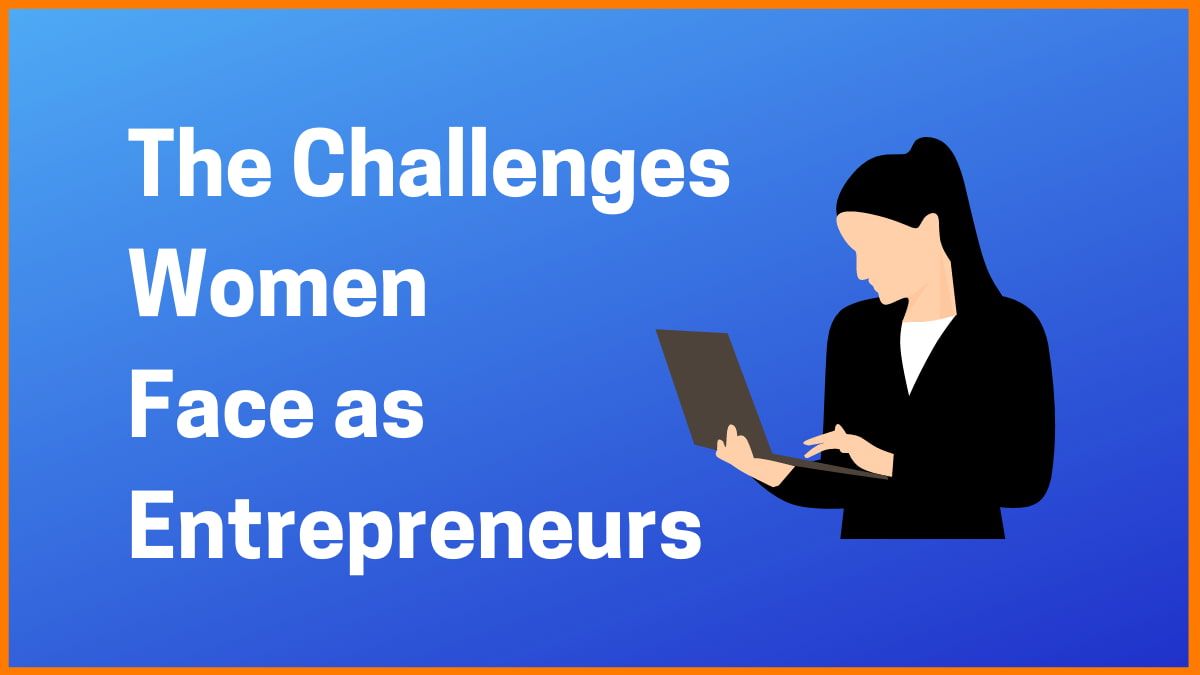In a country like India, festivals play a very significant role in everyone’s life. Every festival in this country is celebrated with loads of enthusiasm and zeal. Diwali is one of the many festivals that are celebrated in India. It is also known as the Festival of Lights and brings a lot of happiness and lessons as well.
Being an entrepreneur is not an easy job, it takes years of hard work, patience, and persistence to be a successful one. All these qualities cannot be achieved overnight, sometimes the hard work you provide, may not give you the desired results. The patience you have may become annoying shortly. Even after all this, one must find something to hold on to, so that they can taste success.
Diwali signifies the end of darkness. To better understand what Diwali teaches us about entrepreneurship, we connected with various founders. They shared their insights on the lessons they’ve learned from Diwali. Now, let’s explore their perspectives to discover valuable insights for entrepreneurial growth.
“Your work is going to fill a large part of your life, and the only way to be truly satisfied is to do what you believe is great work. And the only way to do great work is to love what you do.”
– Steve Jobs
The lessons stated here are for every entrepreneur to learn from the festival of Diwali. It will give them a clearer mindset and a more positive outlook towards the job that they are doing.
Founders on Diwali’s Entrepreneurial Lessons
What Does Diwali Teach Us About Entrepreneurship?
- Cleaning the Negativity
- Having Patience is the Key
- Light Up your World
- The Beginning of Something New
- Teamwork
- Plans of Future
- Protection from Unfavorable Situation
- Generosity and Sharing Knowledge

Founders on Diwali’s Entrepreneurial Lessons
Here are the insights from visionary founders on the lessons they learned from Diwali:
Mandar Pimple, CMO, Aerpace

Entrepreneurship, much like Diwali, is about balancing joy with challenges. Diwali teaches us to bring clarity amidst chaos, just as we aim to do with Aerpace’s transportation solutions. Currently, we’re focused on building global awareness, but as we move into the retail phase, festivals like Diwali will play a key role in our strategy. Diwali is synonymous with travel—a perfect alignment with our vision of seamless, all-electric, regional – air mobility. We aim to tap into the cultural significance of festivals, ensuring that travel is smooth and joyful, enhancing celebrations rather than interrupting them.
Kartheeswaran K K, CEO and Co-founder, Ninjacart

The festival’s emphasis on the victory of light over darkness symbolizes the triumph of optimism and determination in the face of challenges—a sentiment echoed in the entrepreneurial journey. In the agri sector, where the unpredictability of weather and market fluctuations cast shadows of uncertainty, Diwali becomes a poignant reminder that even in the toughest times, the spirit of entrepreneurship can shine through.
Like the farmers who tirelessly cultivate, the traders ensuring a seamless supply chain, and the retailers opening their shops even on this festive day, Diwali teaches us unwavering resilience and unity in the journey of entrepreneurship—where dedication lights up the path to success and collaboration brightens the shared prosperity of all players in the entrepreneurial landscape.

Mukesh Vij, CEO and Founder, Hashtag Orange

The festival of lights holds a special place in my heart, evoking cherished childhood memories. However, today, Diwali imparts invaluable life lessons that have helped me shape my professional endeavors. Beyond its delightful festivities, the special occasion has instilled the true essence of entrepreneurship in me. The auspicious festival also underscores the virtue of patience, reminding us that successful projects necessitate waiting for desired results. Just as Diwali illuminates our lives, I have accepted the power of uplifting words in boosting employee morale and eliminating their deep-rooted self-doubt.
Furthermore, the spirit of teamwork that makes Diwali preparations joyous has inspired me to promote a collaborative environment within my company so that together we can achieve remarkable success.
Divanshi Gupta, Director, The Marcom Avenue

Diwali, the Festival of Lights, imparts several valuable lessons for entrepreneurship. It serves as a reminder of the importance of meticulous planning and preparation. Just as Diwali enthusiasts meticulously clean and decorate their homes, entrepreneurs must set clear goals and create well-thought-out business plans to navigate the journey of building a successful venture.
Moreover, Diwali highlights the significance of risk-taking, innovation, and creativity. The festival’s dazzling fireworks and intricate rangoli designs reflect the thrill of risk-taking and the need for innovative thinking in entrepreneurship. As entrepreneurs, embracing calculated risks and fostering a culture of innovation and creativity are essential for staying competitive in the market. These lessons from Diwali resonate deeply with the entrepreneurial spirit, emphasizing the values of planning, resilience, and community building in the pursuit of success.
Nikhil Sikri, Co-founder and CEO, Zolostays

Diwali, the festival of lights, illuminates the path of entrepreneurship, reminding us that success requires both preparation and perseverance. Just as we meticulously clean our homes and decorate them with radiant lamps, in business, we must clean our strategies of clutter and illuminate our vision with unwavering dedication. The triumph of light over darkness symbolizes the triumph of innovative ideas over challenges.
Diwali teaches us that, like the diya’s flame, the entrepreneurial spirit should burn brightly, igniting hope, inspiring others, and bringing people together. In entrepreneurship, as in the festival, the celebration lies in uniting forces to light up a brighter future.
Shrenik Parmar, Founder and CEO, DegreeLabs Limited

Diwali, the Festival of Lights, offers profound entrepreneurial lessons. It mirrors the meticulous planning and goal-setting required in successful business ventures. Just as Diwali’s fireworks symbolize thrill and risk, entrepreneurship embodies calculated risk-taking. The diverse Diwali decorations underscore the need for innovation in business to stand out. Teamwork, akin to Diwali’s sense of community, is crucial for entrepreneurial success. Resilience, a core Diwali theme, is equally vital in business to bounce back from setbacks.
Lastly, Diwali’s spirit of giving highlights entrepreneurs’ role in contributing to society, a fundamental aspect of thriving enterprises. These lessons inspire entrepreneurs with the values essential for success.

Maddie Amrutkar, Founder, Glad U Came

Diwali, the festival of lights, resonates with profound entrepreneurial lessons. Just as the festivities illuminate darkness, entrepreneurship entails dispelling the shadows of uncertainty and taking calculated risks. The meticulous preparation before Diwali symbolizes detailed planning in business. Cleaning and renovating homes parallel the necessity of refining ideas and strategies. The exchange of gifts and sweets portrays the importance of nurturing relationships and fostering a strong network, crucial for any entrepreneur. The lighting of diyas signifies the spirit of innovation and adaptation, essential for thriving in a fast-paced market.
Additionally, the triumph of good over evil embodies the resilience and perseverance needed to overcome challenges and setbacks. Diwali, therefore, serves as a reminder that entrepreneurship demands a blend of strategy, nurturing relationships, innovation, and unwavering determination to succeed amidst adversity.
Saurabh Vohara, Founder and CEO, ALYF

Diwali is a reminder to us entrepreneurs that there is always light at the end of the tunnel and success often comes after enduring the tough day. Moreover, Diwali’s emphasis on creativity and innovation encourages us to think beyond conventional boundaries, a hallmark of successful businesses.
Collaboration, an integral part of the festive spirit, echoes the significance of building strong partnerships. Giving back can be integrated into a startup’s social responsibility. Gratitude towards teams, customers, and supporters is essential.
While these learnings resonate with startups across industries, real estate entrepreneurs must particularly focus on adaptability, as the real estate market can vary greatly by region. After all, like Diwali itself, the real estate industry is diverse and dynamic.

What Diwali Teaches Us?
Here are some prominent lessons from Diwali about entrepreneurship:
Cleaning the Negativity
Diwali is a time when we clean our entire house; it is the first step for the preparation for one of the biggest festivals in India. Not only the place you reside but also the place you work from, that is your office. It is the best time to tidy up your workspace and home and adorn them with lights, flowers, and other decorations. The same goes for your life as well.
Clean up all the negative thoughts from your mind and decorate your life with positivity. One of the most significant things while being an entrepreneur is to remain positive. It may not solve all your problems, but it gives out the strength to face them head-on.
Having Patience is the Key
Every year we wait for the festival of light eagerly. This teaches us the quality of patience. Just like we wait patiently for a year; similarly, as an entrepreneur, patience is vital while awaiting success.
You sometimes may not get the desired result even after giving your 100% and may have to wait a lot for the perfect project for your company, but you must not lose the patience required during this time. This virtue is one of the necessities in the life of an entrepreneur.
Light Up your World
Diwali is called the festival of lights for a reason, it provides light to the darkness literally, wherever you go, you will find decorative lights everywhere, illuminating the entire atmosphere. This is also the time when we light up our homes and workplaces with beautiful and designer paper lanterns, Diyas, and LED lights.
It is also the time to light up your world with good thoughts and encouragement so that you can stand against all the darkness that surrounds you while being an entrepreneur.
The things that discourage you in the prime time like financial conditions, insecurity, and even loneliness, use this Diwali lesson to light up your world and freely be an optimist.
The Beginning of Something New
Every Diwali people buy new things and it is kind of a tradition. Those new things include clothes, accessories, furniture and even upgrading new technologies. Just like that a new future also awaits you, start by mingling with new clients and it may result in a successful new project as well. A small upgrade of your business won’t harm you and will boost your ability as an entrepreneur. It can be an amazing lesson learned from Diwali.

Teamwork

Teamwork makes the dream work. The decoration and celebration of Diwali cannot be done alone, so you need your family and colleagues to decorate your house and office respectively. The same goes for an entrepreneur, when you begin a business, it is not a solo-player game, where you need to work with your team to ensure that your business reaches the peak of success.
Plans of Future
The plans during Diwali are made a long time before, it wouldn’t be wrong to say that it is done throughout the year. When you open a business, future planning is necessary to set up the company properly. The investment of money in resources and development has to be done for the future. It is another need for a good entrepreneur.
Protection from Unfavorable Situation
Firecrackers are an all-time favorite for kids during Diwali. This is the time when one needs to be careful to avoid any type of accident. Just like that, an entrepreneur needs to protect his/her business as well, and it can be done through insurance. The insurance policy of a company will guard it against any future financial losses that may lead to the failure of the entrepreneur’s business.
Generosity and Sharing Knowledge
Diwali reminds us to share joy and kindness, and the same applies at work. Just as sweets are shared during the festival, sharing knowledge and skills with colleagues helps everyone grow. When we support each other, we build stronger teams, improve together, and make our workplace shine brighter.

Conclusion
Diwali teaches us a lot of things and an entrepreneur can learn all those lessons if they have the will to do so. Being an entrepreneur doesn’t mean you can reach success
through money and your brain. They are not the only things that can suffice, one also needs to learn optimism, patience, confidence, courage, and creativity.
All these are some of the most important traits that are needed in an entrepreneur and some of the lessons can be learned from the festival of Diwali, which is one of the epitomes of positivity.
FAQs
What message does Diwali give us?
Diwali is a five-day festival and the most important message of Diwali is the victory of good over evil.
What values or ideas can we learn from Diwali?
You can learn values like sharing, respect, togetherness, benevolence, ethics, affection, and more from Diwali.
What are Diwali lessons?
Diwali teaches every entrepreneur various lessons, like:
- Cleaning of negativity
- Patience
- The beginning of something new
- Teamwork
- Future planning
- Protection from unfavourable situations






























